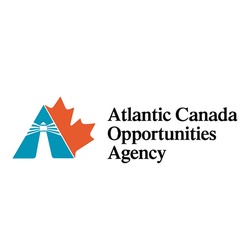
Closed
ACOA — Aerospace Regional Recovery Initiative
Last Update: December 12, 2025
NS, Canada
Funding to recover Atlantic aerospace sector
Grant and Funding
At a glance
Funding available
Financing goals
Renovate your business/factory
Develop strategic partnerships
Selling in a new market
See more
Eligible Funding
- Up to 100% of project cost
Timeline
- Receipt of requests is now closed
Eligible candidates
Eligible Industries
- Manufacturing
Location
- Nova Scotia
Legal structures
- All legal structures
Annual revenue
- All revenue ranges
Organisation size
- All organization sizes
Audience
- Indigenous Peoples
- Canadians
- Startups
Overview
If your SME or non-profit is working on a project to become more environmentally friendly, improve productivity, strengthen commercialization or integrate with regional and global supply chains, you could get a contribution to help with some of the costs.
Activities funded
- Adoption and commercialization of clean technologies to reduce environmental impact and increase productivity.
- Implementation of advanced manufacturing practices and digital solutions, such as artificial intelligence and Industry 4.0.
- Strategic commercialization of innovative aerospace products and integration into supply chains.
- Capital investment projects that support business transformation and prepare for future growth in the aerospace sector.
- Workforce development initiatives, including training and upskilling to address labour and skills shortages.
Examples of admissible projects:
$ 250,000
Develop and commercialize AI-driven cybersecurity solutions
$ 210,000
Integrate new technologies into the supply chain
$ 220,000
Scale-up high-potential firms with new start-up integration
$ 200,000
Implement advanced manufacturing techniques and Industry 40 technologies
$ 180,000
Adopt clean-tech products to transition towards greener operations
$ 180,000
Conduct workforce and skills development for advanced manufacturing
Eligibility
- The applicant must be an incorporated small to medium-sized business (SME), not-for-profit organization providing services to SMEs, municipality, province or territory, or Indigenous organization.
- The project must support the aerospace sector through activities such as greening operations, improving productivity, or strengthening commercialization and integration into supply chains.
- The organization must provide all required supporting documents, including financial statements and a project plan, with the application.
- The project should align with one or more program priorities, including sustainability, economic development, diversity and inclusion, or digital adoption in aerospace.
Who is eligible?
- Incorporated small to medium-sized enterprises (SMEs) in the aerospace sector
- Not-for-profit organizations providing essential services to aerospace SMEs
- Municipalities
- Provinces or Territories
- Indigenous Organizations operating within or supporting the aerospace sector
Who is not eligible
Some types of companies are not eligible for this grant.
- Businesses outside the aerospace industry.
- Large corporations that do not fall under the category of small and medium-sized enterprises (SMEs).
Eligible expenses
- Capital investments (up to $10 million) required to support project implementation.
- Acquisition and adoption of clean technologies, products, or services to lower carbon footprint.
- Costs related to the adoption of advanced manufacturing and Industry 4.0 technologies (including artificial intelligence).
- Procurement of digital solutions and enhancement of cybersecurity measures.
- Workforce development costs, such as training, upskilling, or hiring directly related to the project.
- Technical assistance fees for technology adoption and improving management practices.
- Supplier quotes, permits, and licenses necessary for project execution.
Eligible geographic areas
- Nova Scotia
- New Brunswick
- Prince Edward Island
- Newfoundland and Labrador
- Ottawa
- Other regions within Canada, as the program is available across Canada
Selection criteria
- Contribution to greening operations or products and adoption of environmentally sustainable practices.
- Impact on the resilience and international competitiveness of the aerospace sector, including recovery from the COVID-19 pandemic.
- Extent of digital adoption within the aerospace industry and enhancement of cybersecurity.
- Support for inclusivity and diversity by addressing barriers faced by under-represented groups.
- Demonstration of measurable economic benefits, such as business development, job creation, and productivity improvements.
How to apply
1
Review Eligibility and Guidelines
- Consult the applicant guide for detailed eligibility criteria and guidelines.
- Ensure your project aligns with the objectives and priority areas of the ARRI initiative.
2
Prepare Application Materials
- Gather all necessary documents and information needed for the application.
- Ensure you have documented your project plan, budget, and any additional supporting information.
3
Fill Out the Application Form
- Access the ARRI application form online from the ACOA website.
- Complete all required fields, ensuring accuracy and completeness.
4
Submit Application
- Submit your application through the application for financial assistance page on the ACOA website.
- Alternatively, mail your completed application form to the ACOA regional office in your province.
Additional information
- The application must include supplementary documents such as financial statements, project plans, and relevant licenses where applicable.
- If the project addresses diversity and inclusion, indicate which under-represented groups will benefit and provide details in the project plan.
- Certification and consent are required as part of the application process, attesting to the accuracy of provided information.
- Certain disclosures regarding the project must be made, and all applications are subject to the Access to Information Act and the Privacy Act.
Contacts
ns.bis-sie.ne@acoa-apeca.gc.ca
1-888-576-4444
NS, Canada
Apply to this program
Frequently Asked Questions about the ACOA — Aerospace Regional Recovery Initiative Program
Here are answers to the most common questions about the ACOA — Aerospace Regional Recovery Initiative. This section explains what the program is, how much funding is available, eligibility requirements, application deadlines, and other important details to help you determine if this grant is right for your business.
What is the ACOA — Aerospace Regional Recovery Initiative?
How much funding can be received?
What expenses are eligible under ACOA — Aerospace Regional Recovery Initiative?
What is the deadline to apply?
Is the ACOA — Aerospace Regional Recovery Initiative a grant, loan, or tax credit?
Who are the financial supporters of the ACOA — Aerospace Regional Recovery Initiative?
Who is eligible for the ACOA — Aerospace Regional Recovery Initiative program?
Who can I contact for more information about the ACOA — Aerospace Regional Recovery Initiative?
Where is the ACOA — Aerospace Regional Recovery Initiative available?
Are startups eligible for the ACOA — Aerospace Regional Recovery Initiative program?
Are Indigenous Peoples eligible for the ACOA — Aerospace Regional Recovery Initiative program?
Apply to this program
More programs like this

Loans and Capital investmentsOpen
Regional Economic Growth through Innovation (REGI) — Business Scale-up and Productivity — ACOA
Atlantic Canada Opportunities Agency (ACOA)Financing to accelerate growth in Atlantic Canada

Wage Subsidies And InternsOpen
START Program
Government of Nova ScotiaFinancial incentives for Nova Scotia employers with a labour need

Grant and FundingOpen
ACOA Jobs and Growth Fund — For Profit
Atlantic Canada Opportunities Agency (ACOA)Money to future-proof your Atlantic Canada for-profit business

Grant and FundingOpen
Atlantic Fisheries Fund – Atlantic innovation, infrastructure or science partnerships funding
Fisheries and Oceans Canada (DFO)Funding for innovation, infrastructure and science projects in the Atlantic

Other SupportExpert AdviceOpen
Launch Export Atlantic Incubator
Government of Nova ScotiaSupport from subject matter experts for export capacity

Grant and FundingClosed
Invest Nova Scotia — Greenshoots
Government of Nova ScotiaFunding for early-stage businesses in Nova Scotia

Tax CreditsOpen
Nova Scotia innovation equity tax credit
Government of Nova ScotiaTax incentive encouraging investment in innovative Nova Scotia businesses

Expert AdviceOpen
Europe Market Development Program
Government of Nova ScotiaDevelopment support for Atlantic exporting companies

Grant and FundingClosed
Seafood Expansion and Market Access Program (SeaMArk)
Perennia Food and Agriculture CorporationSupports Nova Scotia seafood businesses in expanding market access

Grant and FundingOpen
Centre for Women in Business
Centre for Women in BusinessTraining and events for Nova Scotia women entrepreneurs
Sign up to our platform to access the ACOA — Aerospace Regional Recovery Initiative information sheet for free
Get access to 4,000+ programs, practical guides, personalized alerts, and an AI assistant to support your grant applications.